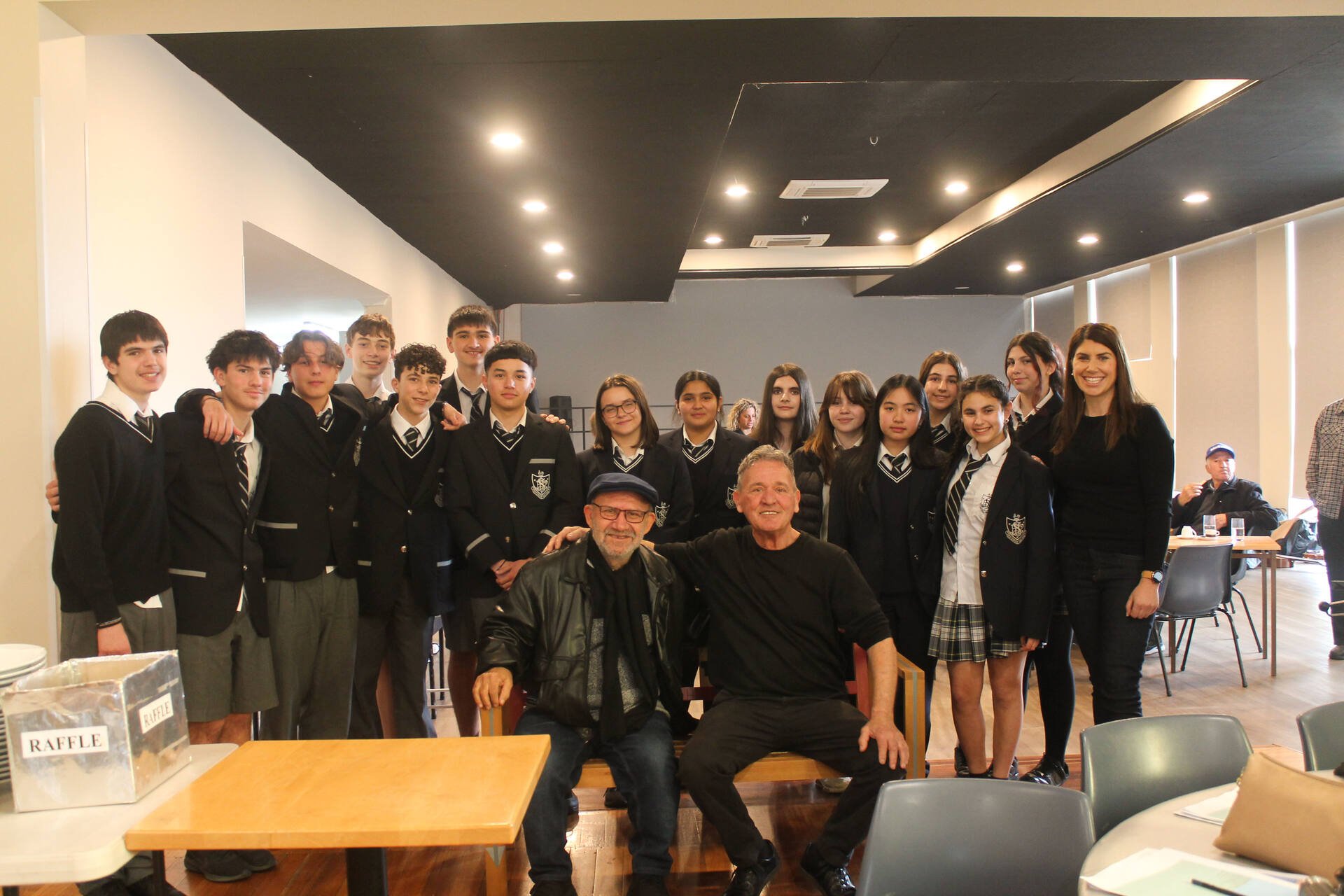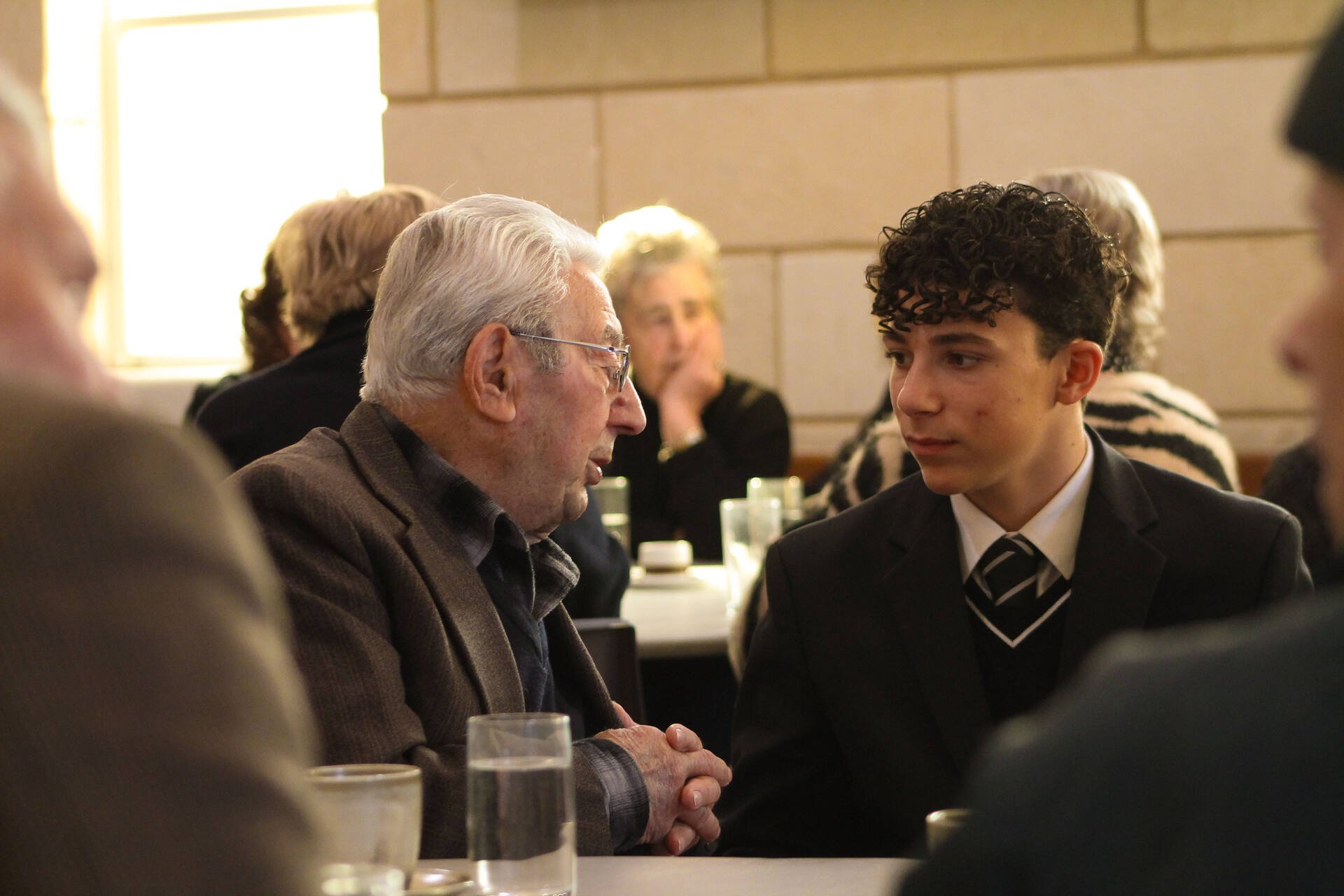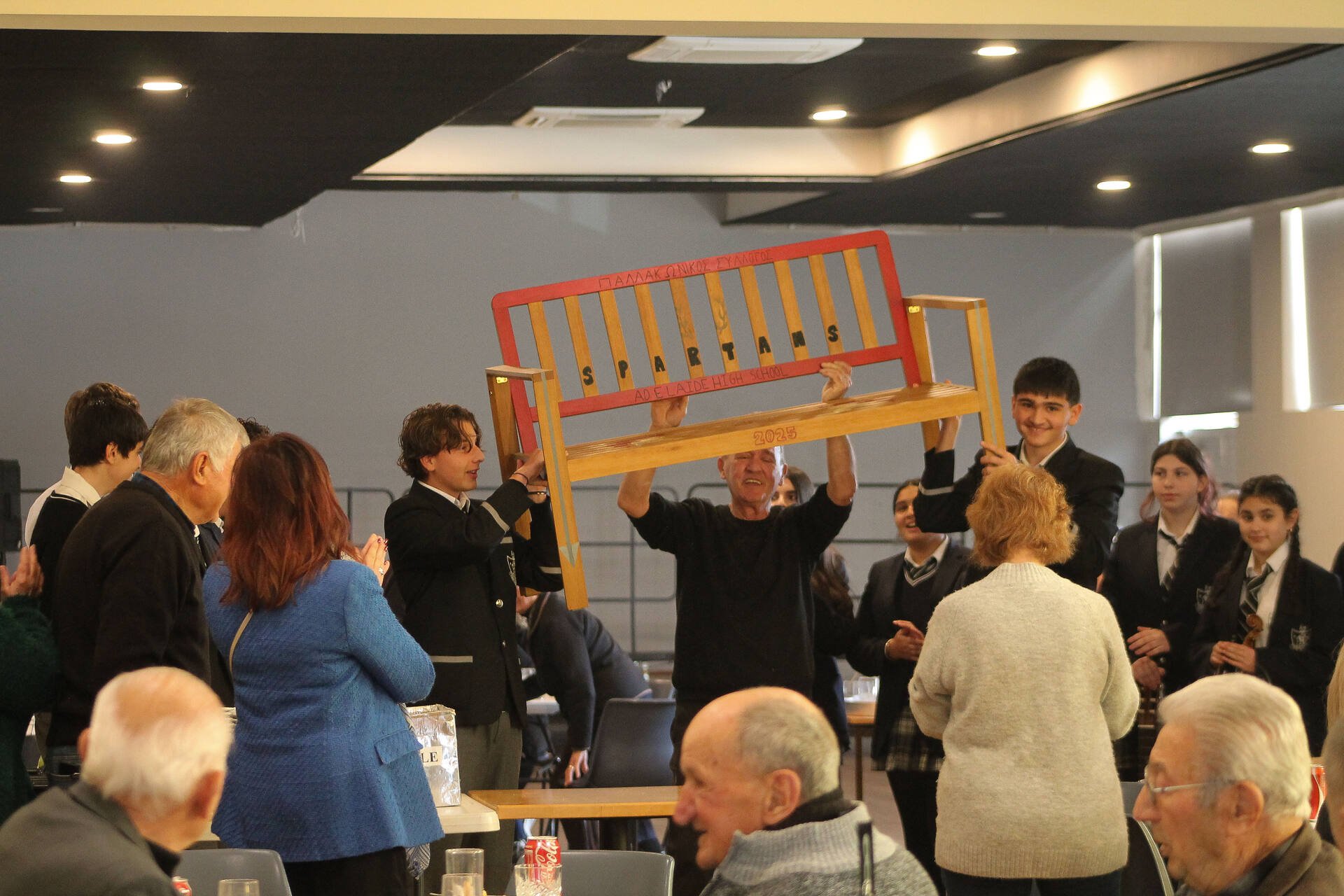At a modest kafeneio in Adelaide’s west, the clack of backgammon dice blends with the laughter of teenagers and the warm voices of elders.
It’s not a scene you see every day, but for one unforgettable morning, generations came together to preserve the stories that shaped a community.
As part of an intergenerational oral history project, Year 9 Greek language students from Adelaide High School visited the Pan-Laconian Society of South Australia to meet with elderly members, exchange stories, and learn firsthand about the migrant journey that brought so many Greek Australians to where they are today.
The initiative, titled Our Greek-Speaking Community, is the result of a collaboration between Neoléa (the youth platform of the Greek Orthodox Community of SA), Adelaide High School, and the Pan-Laconian Society.
But beyond the lesson in language and history, what unfolded was something deeper: connection.
“It was a great joy for us, and very moving,” said community elder Dimitri Katsambis.
“You don’t see it every day. Young people walking into a café, sitting down, ready to play a game of backgammon with you, to listen, to ask questions. We felt like life hadn’t forgotten us. Their presence gave us life.”
The students weren’t there just to listen. Each one was tasked with recording a story, conducting interviews, and creating a biography and video tribute for each senior, small acts that will become part of a growing digital archive of the Greek Australian experience.

Ruby Grivas, one of the participating students, said what stood out most was how much the elders valued family above all else.
“It was nice to see how everyone shared that view. The room was full of energy and openness and everyone was so kind and ready to talk. It gave us a deeper understanding of their lives and what matters most to them.”
For Sofia Gonis, the journey stories left a lasting impression.
“It was really engaging. Many had arrived on the same boats and may have even crossed paths years ago. Sitting down and having lunch with the Spartan club, sharing stories and food. It was such a highlight.”
There was no shortage of wisdom exchanged. Manos Nikolaidis said the experience opened his eyes to both the hardship and the strength of the older generation.
“They taught us that family comes first, and to always be a gentleman,” he said.
“But what struck me most was their positivity. Even though they spoke about difficult times, they didn’t dwell on regret. It made me want to live with that same mindset.”

For Dimitri Katsambis, the act of sharing his story was more than memory, it was legacy.
“Honestly? It felt like I was reliving those years,” he said.
“And I felt proud, because some young person will take my story and carry it forward. It won’t be lost.”
The students also gifted the Pan-Laconian Society a handcrafted bench as a gesture of thanks, while two students performed music, and club members prepared a generous lunch that embodied the spirit of filoxenia.
Greek teacher Dimitra Rozaklis, who helped bring the project to life, described it as one of the most meaningful experiences of her teaching career.

“The kindness and filoxenia of the Laconians and of course, the delicious food, made the day unforgettable. The community is at the heart of our classroom. Watching students embrace the stories of older generations gives me hope that our language, culture, and identity are in safe hands.”
For Neoléa Chair Anastasia Mavrides, the project is part of a growing effort to reconnect Greek Australian youth with their cultural roots in relevant, modern ways.
“It’s about building bridges between generations,” she said.
“Seeing the room filled with conversation, music, and laughter was a powerful reminder of what community is all about.”
That reminder is resonating, with both those who came before, and those who are now finding their place in the story.
“If you don’t pass it on to the children, everything will be lost,” said Katsambis.
“We learned from the old ones, and now it’s our turn to pass the torch. They need to know where they come from.”
And perhaps, with projects like these, they will.